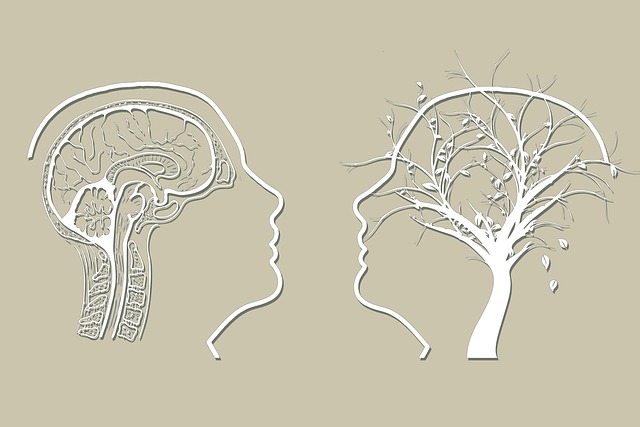Lakewood Somatic Experiencing Therapy (LSE) is a revolutionary approach to mood regulation that integrates mind, body, and spirit. By leveraging sensory experiences and body-oriented practices, individuals gain self-awareness to identify and process emotional triggers, leading to improved mental wellness. LSE's holistic techniques enhance resilience, reduce burnout, and support ongoing stability through podcasts. For healthcare providers, incorporating LSE strategies like deep breathing, mindfulness meditation, and setting boundaries promotes stress management, trauma processing, and positive mindsets, ultimately improving patient care.
Mood regulation is a vital skill in navigating life’s challenges. This article explores effective strategies to help you manage and enhance your emotional well-being, focusing on the powerful tool of Lakewood Somatic Experiencing (LSE) Therapy. Discover how LSE can facilitate profound changes, offering a unique approach to processing emotions. We’ll guide you through practical daily techniques combined with LSE practices, empowering you to take control and foster positive mood regulation for improved mental health.
- Understanding Mood Regulation and Its Significance
- The Role of Lakewood Somatic Experiencing Therapy (LSE) in Mood Management
- Practical Strategies for Daily Life
- Incorporating LSE Techniques into Your Routine
Understanding Mood Regulation and Its Significance

Understanding mood regulation is paramount for fostering mental wellness. It involves the ability to manage and modify emotional states effectively, ensuring that feelings align with current circumstances. This process is crucial for maintaining balance and resilience in the face of life’s challenges. Lakewood Somatic Experiencing Therapy (SE) offers a unique approach to achieving this equilibrium. SE focuses on reconnecting mind, body, and spirit, providing powerful tools for self-care practices aimed at enhancing emotional regulation.
By integrating Self-Care Practices within this therapeutic framework, individuals can develop effective Communication Strategies for navigating their emotions. This holistic process empowers folks to recognize and express their feelings healthily, fostering positive interactions and strengthening relationships. Ultimately, mastering mood regulation through methods like Lakewood Somatic Experiencing Therapy is a transformative journey towards optimal Mental Wellness.
The Role of Lakewood Somatic Experiencing Therapy (LSE) in Mood Management

Lakewood Somatic Experiencing Therapy (LSE) offers a unique and effective approach to mood regulation, focusing on the deep connection between our physical bodies and emotional states. This therapy type aims to help individuals cultivate self-awareness exercises that can significantly impact their mental wellness. Through LSE, clients learn to identify and process stored trauma or intense emotions, allowing them to develop healthier coping mechanisms. By engaging in this therapeutic process, one can gain profound insights into their triggers and patterns, enabling better management of mood fluctuations.
The method goes beyond traditional talk therapy by incorporating sensory experiences and body-oriented practices. This holistic approach encourages individuals to explore and understand the bodily sensations associated with different emotional states. As a result, clients may find themselves better equipped to respond to crises with enhanced resilience, as opposed to reacting impulsively. The techniques learned can also be shared through mental wellness podcast series production, providing ongoing support for maintaining stability even outside of formal therapy sessions.
Practical Strategies for Daily Life

Incorporating mood regulation strategies into daily life can significantly enhance mental wellness and prevent burnout, especially for healthcare providers who often face high-stress environments. Simple yet effective techniques like deep breathing exercises and mindfulness meditation can help manage stress levels and promote a sense of calm throughout the day. For instance, practitioners of Lakewood Somatic Experiencing Therapy emphasize the connection between physical and emotional states, offering tools to process trauma and regulate mood in a holistic manner.
Additionally, setting clear boundaries and prioritizing self-care are essential burnout prevention strategies for healthcare providers. Regular breaks, adequate sleep, and engaging in activities that foster mental wellness and build confidence can contribute to a healthier work-life balance. By integrating these practical strategies into their routines, individuals can improve their ability to cope with challenging situations and maintain a positive mindset, ultimately enhancing the quality of care they provide.
Incorporating LSE Techniques into Your Routine

Incorporating techniques from Lakewood Somatic Experiencing (LSE) therapy into your daily routine can be a game-changer for managing and regulating moods, especially for healthcare providers facing burnout. LSE is not just about relaxation; it focuses on helping individuals process traumatic or stressful events stored in the body, allowing them to release tension and regain emotional balance. By incorporating these practices, you can enhance self-awareness and develop effective coping mechanisms.
Mindfulness meditation, a key component of LSE, teaches you to be present in the moment, observing your thoughts and feelings without judgment. This practice is particularly beneficial for healthcare workers who often juggle high-pressure situations. Combining mindfulness with communication strategies can also improve patient interactions. For instance, active listening and empathy during conversations can reduce stress levels and create a more positive environment, ultimately contributing to burnout prevention.
Mood regulation is a vital skill for enhancing overall well-being. By understanding the importance of managing emotions and incorporating effective strategies, individuals can lead happier, more balanced lives. Lakewood Somatic Experiencing Therapy (LSE) offers a unique approach to addressing emotional challenges, promoting deep healing and resilience. Combining LSE techniques with practical daily practices enables people to navigate life’s ups and downs with greater ease. These strategies empower individuals to take control of their mental health and foster a sense of equilibrium, ultimately improving the quality of their lives.














